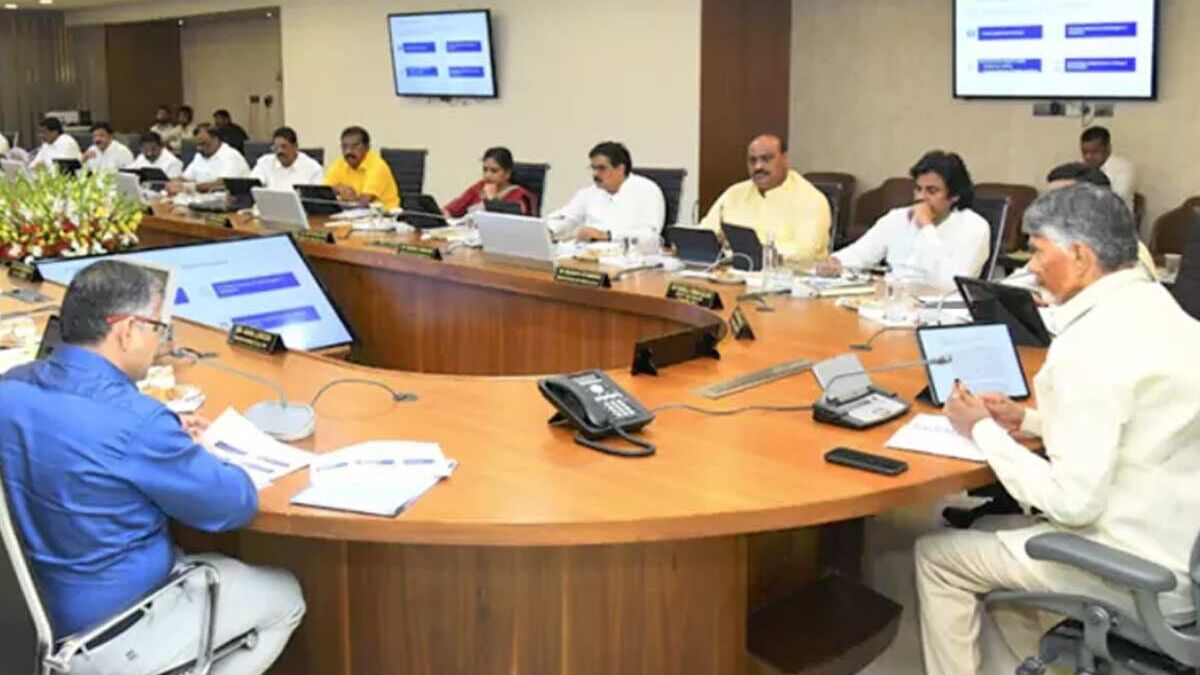According to Minister K Parthasarathy, the new policy will encourage IT campuses, co-working spaces, and hybrid work patterns by offering incentives of up to 50% of investment expenses.
On Tuesday, the state cabinet of Andhra Pradesh, led by Chief Minister N Chandrababu Naidu, adopted a number of important policies and measures to boost the state’s economy, including pursuing a number of infrastructure projects.
The cabinet approved the Information Technology and Global Capability Centre policy 4.0, which sought to establish Andhra Pradesh as a global hub for the knowledge economy by promoting innovations, the gig economy, and sustainable economic growth, state information and public relations minister K Parthasarathy told reporters following the cabinet meeting.
According to him, the new rule would encourage IT campuses, co-working spaces, and hybrid work models by offering incentives of up to 50% of investment expenses. “These hubs will be located in cities like Tirupati, Visakhapatnam, Vijayawada, and Amaravati, with satellite centers slated for rural areas,” he stated.
The textiles, apparel, and garments policy, which aims to create 200,000 jobs and invest ₹10,000 crore over five years, was also approved by the cabinet during the meeting. According to Parthasarathy, the program will create five new integrated textile parks using a public-private partnership (PPP) model with financial incentives and increase textile exports to $1 billion.
The marine policy, which sought to establish Andhra Pradesh as a premier nautical nation with strong port facilities, was also approved by the cabinet. The policy’s recommendations include building a mega shipyard and related projects to increase freight handling above the present 180 million tonnes per year.
The cabinet also authorised a policy called the Real-Time Governance System, which uses artificial intelligence-driven technologies, data analytics hubs, and WhatsApp-based document delivery to streamline citizen services.
“Under the PMAY-G and PM-JANMAN schemes, the cabinet discussed various proposals for the housing development to complete pending rural and urban housing projects by 2026, targeting over 750,000 homes,” Parthasarathy stated.
In order to draw large investments and create jobs through eco-tourism, temple circuits, and adventure tourism, the cabinet also adopted sports and tourist policies for the following five years.
In anticipation of ₹30,000 crore in investments and 60,000 new jobs, the cabinet deliberated on transforming Amaravati into an electric mobility metropolis. “The cabinet also discussed in depth about the Jal Jeevan Mission, which was neglected during the previous regime. “Efforts will be made to revive the ₹51,000 crore mission, to enhance rural water supply systems,” the minister added.
State municipal administration and urban development minister P Narayana said the cabinet approved the administrative sanction to the extent of ₹1,471 crore for restarting Amaravati capital city infrastructure works, previously stalled due to administrative delays.

